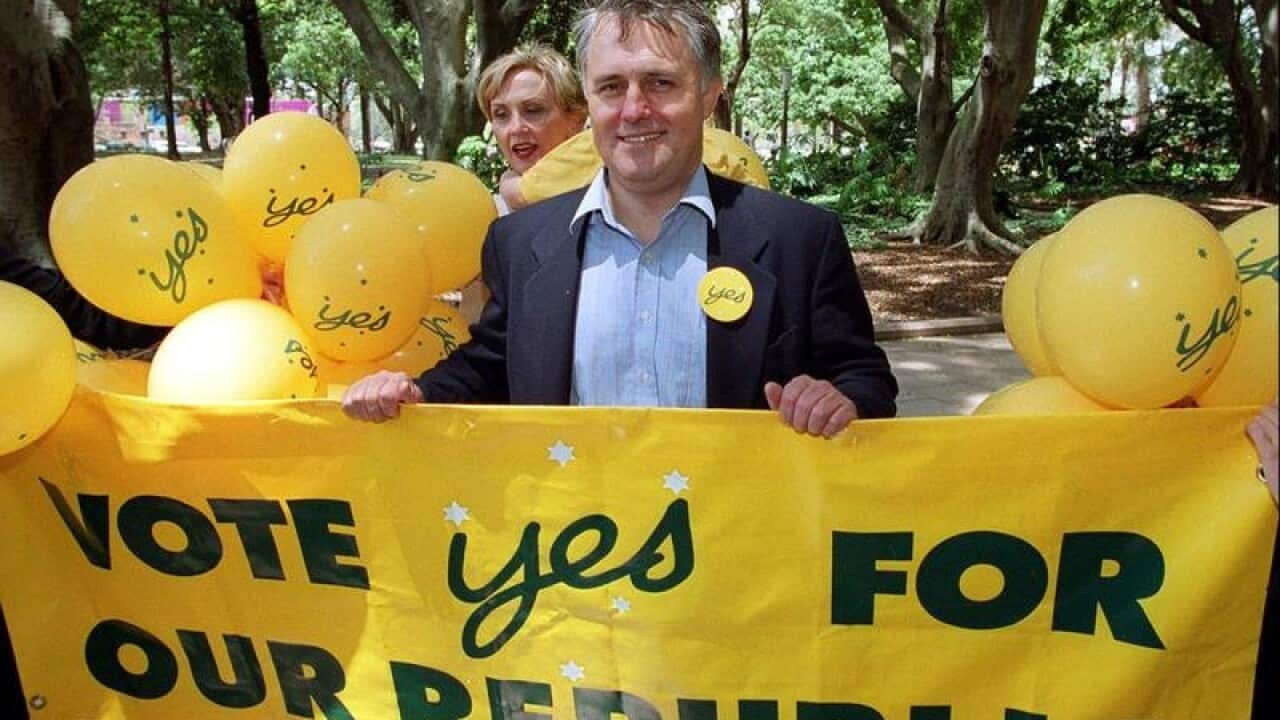In a thoughtful and compelling submission to the Keating Labor government in 1994, the Republic Advisory Committee put their case for minimal change in the move to an Australian head of state.
The only problem was that polling showed this had no chance at all of winning over voters.
Cabinet documents for 1994, released on Monday by the National Archives of Australia, show this polling, only obliquely acknowledged in the submission to cabinet, put support for direct election of the president as high as 91 per cent.
Public backing for the favoured model - appointment or removal of the president by a two-thirds majority of a joint sitting of both houses of parliament - had support as low as three per cent and 16 per cent at its highest.
That model was endorsed by the Republic Convention in February 1998 and went to a national referendum in November 1999. It was defeated 54.87 per cent to 45.13 per cent.
Defeat was attributed to divisions within the republic camp, between those who favoured direct election and those supporting the minimal change model. Most of Labor and some on the coalition side favoured the change but then-prime minister John Howard didn't.
During the campaign, those backing parliamentary appointment argued that this would produce the best possible candidates while direct election would create a US model, with victory as likely to go to a wealthy populist.
With a Labor government in power and supportive of the move to an Australian head of state, the Australian Republic Movement was founded in July 1991, with novelist Thomas Keneally as chairman and Malcolm Turnbull as a founding member. Mr Turnbull became chairman in 1993.
Former Labor deputy prime minister and opposition leader Kim Beazley, guest speaker at the December launch of the cabinet documents, said Bob Hawke appointed Turnbull to head the national advisory committee, which put up the model that cabinet subsequently accepted.
Beazley described the Turnbull submission as an "absolute gem" for its concise exposition of the issues.
But he said there was no chance the public would accept it without having a say on who would be president.
"At the end of the day that's a killer. I just felt we did not have a show of getting the republic through without the directly elected model."
The submission said appointment of an Australian head of state was likely to be one of the most contentious issues which would need to be resolved for a republic referendum to succeed.
It said the first challenge was to preserve historical legitimacy of the head of state and his or her viceroy, the governor-general. The second was to do that while preserving primacy of the elected government over the head of state.
Popular election could lead to the head of state being seen as more important than the actual government.
Central to this were the powers of the head of state.
There are ordinary powers conferred by constitution which include calling elections and summoning parliament, exercised on advice of the government.
Then there are so-called reserve powers, generally thought to be exercisable at the governor-general's discretion. That includes the power to appoint and dismiss the prime minister and therefore the government.
In November 1975, then governor-general John Kerr sacked Labor prime minister Gough Whitlam, an exercise of power which produced national turmoil.
Beazley said Hawke's successor Paul Keating was totally focused on the problem of a possible dual mandate, pitting the future president against the prime minister.
"It was Paul's ultimate big-picture position, designed to produce an outcome which if he won the subsequent election, would be almost the signature effort of the new government," he said.
Beazley said direct election and the codification of head of state powers was the only way a republic could be achieved post-2018.
"I don't think it has a snowball's chance in hell without that," he said.

